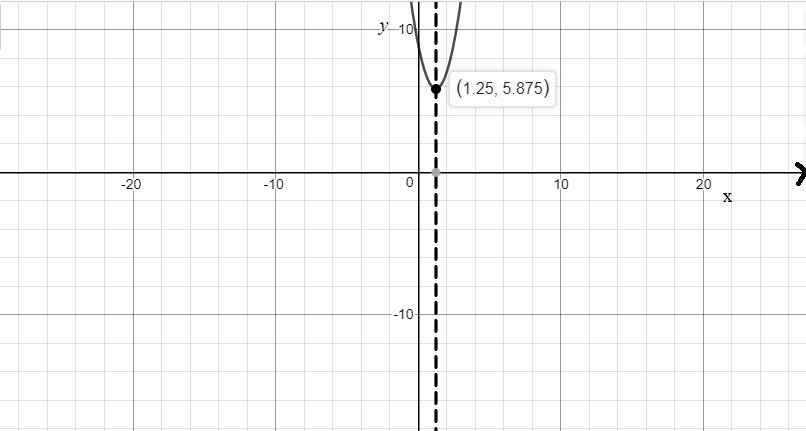Question
Question: Find the axis of symmetry of \[f\left( x \right) = 2{x^2} - 5x + 9\]. A \[x = - \dfrac{5}{4}\] B...
Find the axis of symmetry of f(x)=2x2−5x+9.
A x=−45
B x=45
C x=−25
D x=25
Solution
To find the axis of symmetry, we are given with the equation which is of the form, ax2+bx+c, in which we need to apply the formula to find the axis of symmetry i.e., x=−2ab, substituting the values of a and b we get the axis of symmetry.
Formula used:
Equation for the axis of symmetry:x=−2ab
Here, a and b are coefficients.
Complete step by step answer:
Let us write the given data:
f(x)=2x2−5x+9
The given equation is of the form, ax2+bx+c, in which
a=2, b=−5 and c=9.
We know that, the equation for the axis of symmetry is given as:
x=−2ab
Now, substitute the values in the formula we have:
⇒x=−2(2)−5
Hence, the axis of symmetry of the given curve is:
⇒x=2(2)5
⇒x=45

Therefore, the axis of symmetry passing through the vertex is vertical with equation x=45=1.25.
So, the correct answer is “Option B”.
Note: We must note that the axis of symmetry of a parabola is a line about which the parabola is symmetrical. When the parabola is vertical, the line of symmetry is vertical and when a quadratic function is graphed in the coordinate plane, the resulting parabola and corresponding axis of symmetry are vertical.
